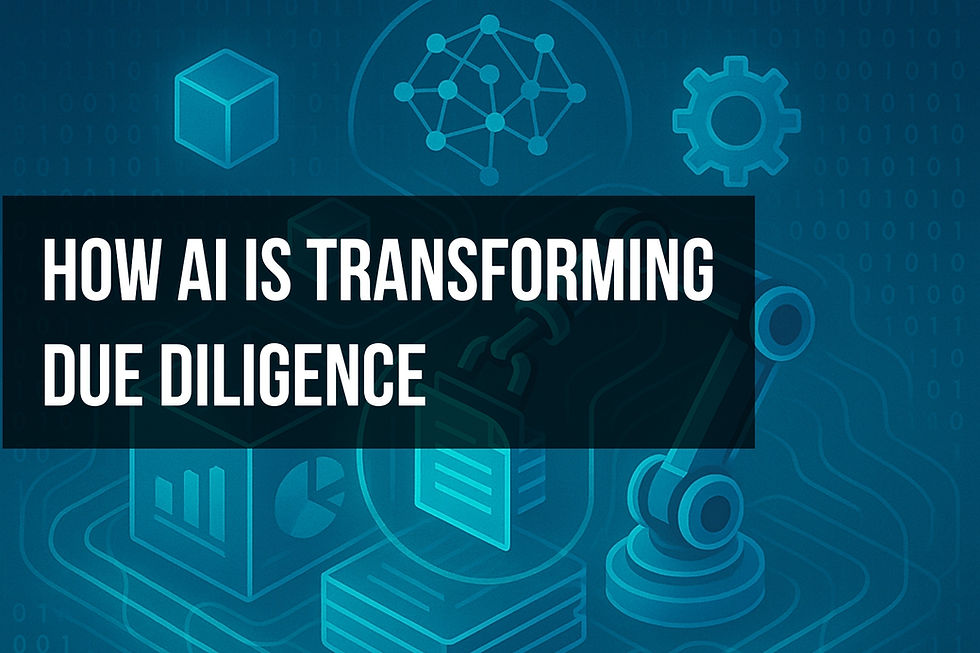- Jul 31, 2025
- 2 min read

Due diligence is one of the most critical—and time-consuming—phases of a merger or acquisition. Traditionally, this process has involved weeks or even months of combing through financial statements, legal documents, operational reports, and compliance records to uncover potential risks and validate the deal’s value. But today, artificial intelligence (AI) is changing the game.
AI technologies are streamlining due diligence in powerful ways, enhancing accuracy, accelerating timelines, and providing deeper insights than ever before. For buyers and sellers alike, understanding how AI is transforming this process is essential to staying competitive in the modern M&A landscape.
1. Accelerated Document Review and Analysis: One of AI’s most impactful contributions to due diligence is its ability to analyze massive volumes of documents quickly and accurately. Machine learning algorithms can scan thousands of contracts, agreements, and reports in a fraction of the time it would take a human team. These tools can extract key terms, identify inconsistencies, flag missing information, and even detect clauses that deviate from standard language—helping legal and financial teams zero in on potential issues early in the process.
2. Enhanced Risk Detection: AI-powered platforms are increasingly being used to identify red flags that might otherwise go unnoticed. By leveraging predictive analytics, natural language processing, and anomaly detection, AI tools can assess everything from financial discrepancies and unusual transactions to reputational risks and cybersecurity vulnerabilities. This capability allows buyers to make more informed decisions and avoid surprises post-closing—especially important in deals involving international operations or highly regulated industries.
3. Smarter Data Rooms and Workflow Automation: Virtual data rooms (VDRs) are standard in M&A, and AI is making them smarter. New AI-enhanced VDRs can automate file categorization, prioritize review materials, and even provide real-time insights into buyer behavior—such as which documents are being viewed most frequently and for how long. For sellers, this means better preparation and presentation of data. For buyers, it allows more efficient navigation and a clearer picture of what matters most in the deal.
4. Improved Post-Merger Integration Forecasting: Due diligence isn’t just about risk mitigation—it’s also about understanding how well two companies will integrate. AI can analyze cultural compatibility, technology stack alignment, and workforce overlap to help forecast integration success. This insight can lead to more realistic synergy estimates, better transition planning, and smoother post-merger execution.
5. More Informed, Real-Time Decision-Making: AI tools continuously learn and improve, offering real-time dashboards and decision-support features that help deal teams assess value and risk dynamically as new information becomes available. This agility is especially valuable in competitive bidding environments, where speed and precision are crucial. As AI continues to evolve, its role in due diligence will only grow—enabling faster, more accurate, and more strategic M&A outcomes.
Talley & Company can help you determine optimal deal pricing and structure to achieve your goals from an ROI and tax perspective, accounting for factors that include revenues, future opportunities and contracts, industry trends, and market share. Contact us today.



Comments